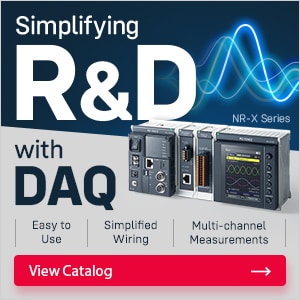- Home
- Solutions
- Case Studies
- In-line Vial Measurement at Capitol Europe
In-line Vial Measurement at Capitol Europe


Capitol Europe specializes in the manufacturing of packages and packaging products for the pharmaceutical industry and medical testing applications. Its strength lies in the specific technological characteristics of its polypropylene tubes and vials that set them apart in several ways. For instance, they are made in one piece directly with their caps. Furthermore, Capitol Europe has been involved in innovative and patented technologies that guarantees their sterility and efficient sealing. Their active coating also ensures absorption of gases and humidity.
This type of manufacturing entails implementation of a highprecision production process, such as the new production line designed by the Sandmann Company to make plastic vials using an injection process. These parts are 26 mm in diameter, with a bevel that is used to pierce the membrane seal. The in-line inspection system required for the application had to show the necessary levels of accuracy while being able to keep up with high production rates. Four sides of each of the 32 parts made have to be measured every 10 seconds (2 for height measurements and 2 more to check the bevels).

“We knew that it would be difficult to find a solution that could rise to the challenge; being fast enough while complying with our requirements in terms of precision”, says Eric Daniel, Maintenance Manager at Capitol Europe’s plant in Niederbronn-Les-Bains.
Capitol Europe opted for an innovative solution enabling high-speed, two-dimensional, in-line measurement with an accuracy level of the order of a micron: the KEYENCE TM- 3000 sensor. This system does away with expensive offline inspections that rely too heavily on the operator’s skills. The 2D optical micrometer features a high-speed central processing unit and two DSP circuits dedicated to image processing allowing it to measure up to 1.800 parts per minute.
Using a telocentric optical system it transmits a uniform beam of collimated light. This avoids variation in the image projected on the receiving element regardless of the target’s position. The two-dimensional CMOS sensor detects transition between dark and light areas and measures the target’s dimensions. The process, which is also impervious to reflective surfaces, ensures accuracy levels of 0.5 μm to 3 μm depending on the model, with repeatability levels of +/- 0.06 μm to +/- 0.2 μm. The measurement range reaches 65 mm at a maximum distance of 270 mm between the transmitter and the receiver.
The micrometers in the TM-3000 series are able to measure up to 16 points on parts to be inspected, and they provide more than 15 measurement modes: diameter, center distance, intersection point coordinates, angle, height, step, distance to a perpendicular, radius, circularity, etc.
Moreover, the position correction function automatically makes up for any target alignment or tilt faults. This ensures high precision even when positioning is difficult or when the objects are moving randomly. The adjustment system is simplified and it does away with the necessity of a mechanical repositioning device. Furthermore, the LED source technology used shows exceptional stability and has a very long service life. Eric Daniel confirms the fact: “We have made 11,000,000 parts since the TM-3000 was installed. We have not had any measurement problems at all, and the level of accuracy remains stable at 0.03 mm. We have obtained the result with several repeat measurements of a given production batch. The result shows a remarkable degree of precision, because our parts are irregularly shaped.”
In spite of the unique performance levels shown by the TM- 3000 series micrometers, they are easy to install and operate. “My colleague in charge of the system mastered it in 10 minutes and the installation took hardly any time at all”, concludes Eric Daniel; the performance levels of the TM- 3000 series have given him ideas for other inspection uses.
APPLICABLE PRODUCT CATALOG

- TM-3000 Series High-speed 2D Optical Micrometer Catalog
Get the Functionality of a Measurement Projector, Now In-line.
Related Products
-
- High-speed 2D Optical Micrometer
TM-3000 series
- High-speed 2D Optical Micrometer
- PLEASE
CONTACT US


